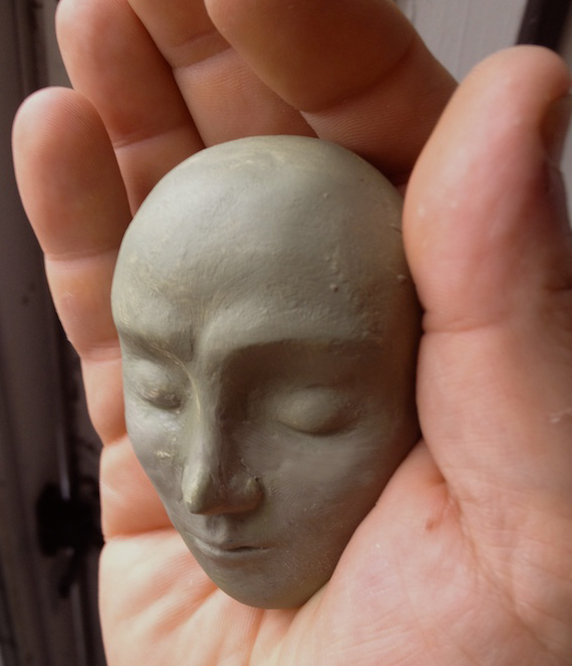
by Ellyn Zografi | Dec 1, 2014 | On Being Human

“We don’t have to be perfect saints or know every answer to every question to begin working for a more just world. We can be wounded or hesitant ourselves, sometimes profoundly so.”
– Paul Loeb (author of “The Impossible Will Take A Little While”)
When dancers and actors go on stage, people often say “Break a Leg”, a traditional, if not ironic, way of offering good luck for a successful performance. Recently, I heard a story of how one therapist said to another therapist who was leaving to go into session with a client, “Make a dent!”
The therapist going into session had been lamenting her recent “inability” to be effective with this client, and upon hearing those words, reported feeling uplifted. It created an aha! moment for her. Therapists easily forget that it isn’t their job to wave a magic wand and eliminate ALL the problems of their clients. A sense of failure can loom when changes aren’t happening as quickly as hoped.
Like therapists, many of us think that the moment we recognize a change needs to be made or a problem fixed, we should be able to just take care of it – all of it, and now. We start to feel hopeless when our intentions don’t match our ability to immediately carry out our goals. This is when we need to say to ourselves and each other, “Make a dent!” and trust the process of change necessitates patience, compassion and a belief that progress comes incrementally, in small quiet ways, rather than like a gigantic explosion in the night.
I suggest this story called “Politcal Paralysis” by Danusha Veronica Goska from Paul Loeb’s inspiring collection of stories about small gestures, patience, common virtues, and unwitnessed acts of goodness that all add up to significant changes in our lives ~ and in the world. After these two reads, you may think twice before saying out loud, “There is nothing I can do” when you feel stuck or ineffective, whether for yourself, your loved ones, your community – your world.

by Ellyn Zografi | Oct 31, 2014 | On Being Human

There is a bumper sticker that says: Don’t Believe Everything You Think. It is a clever way to illustrate that HOW we THINK has the potential to negatively impact how we FEEL and BEHAVE. We give a lot of power to our thoughts, which are often based on assumptions, rather than drawing from any kind of reality or fact finding.
It would be ideal if we could simply “not believe” our thoughts that give us struggle. It would be nice if we could easily eliminate self doubt and second guessing in any given situation or interaction. However, since we can’t always track down for certain the truth in every moment, we spend much of our day interpreting what we are perceiving. In turn, our interpretations may lead us to have thoughts that make us feel bad, insecure, sad, mad or uncomfortable. What do we do with these thoughts then? If we can’t make them go away, what can we do?
Get Curious
When a thought gives us a bad feeling, our first inclination is to try and push the thought away or deny that we had it in the first place. We add a layer of judgment. “I shouldn’t think this way”, or “I feel so guilty that I am having these thoughts”. Unfortunately, this judgement and attempt to rid ourselves of unwanted thoughts can often lead to the thoughts getting even bigger, consuming us to the point in which we feel chronically BAD about ourselves, other people and/or our life situations. We beat ourselves up mercilessly that we can’t just be more positive, more disciplined, more confident, more grateful, etc.
Rather than berating ourselves for our thoughts, we are better off becoming investigators of them. There is usually some reason we are having them. Without judgement, ask ourselves “What is this thought about?” “What is happening that is making me think this way?” “What am I assuming that leads to this thought?”
Observe
When we take the time to cradle an unwanted thought (much like a fussy baby) and trust it’s need for attention, we are giving it space to be OBSERVED. We are taking the time to understand it, rather than jumping to unnecessary action, or assume that the thought is wrong, and should be ignored. Also, interpreting thoughts as neither “good” nor “bad” allows us to have compassion for ourselves, our situations, relationships and interactions.
With this first step of true acceptance and understanding of ALL our thoughts, it is only then we can ultimately let go of the ones that consistently bring us down, and best of all…make room for nurturing the ones that inspire and empower us.

by Ellyn Zografi | Sep 25, 2014 | On Being Human

Robin Williams once described good Comedy Improv as deep listening and responding. This strikes me as holding a wider message for all of us, whether we are comedians or not.
What separates a truly hilarious comedy act from the one which leaves the audience feeling more self-conscious than the comedian? What separates a fulfilling conversation with one that leaves us feeling empty, not heard, or even misunderstood?
Deep listening.
When comedians are too busy thinking about the next something funny to say, they cannot also have the presence to really respond to what is being fed them, whether it is the lines from another comedian, reactions from the audience, or other incidentals on stage. Perhaps, what Robin Williams meant was in order to really make people laugh, comedians first must be connected to their surroundings. And in order to connect and respond effectively to their surroundings, they have to be deeply present, not miles away, lost in their heads trying to impress, searching for the funniest line.
This extends off stage into people’s everyday lives. When we are interacting with others, we are often busy navigating chatter in our brains about what we want to say next, striving to appear smart, witty, caring. Perfect. With such preoccupations, how present can we really be when we are talking to co-workers, friends, our children or partner? What are we missing? Not hearing?
Deep listening. Deep presence.
It involves redirecting our attention from that relentless brain chatter of taking inventory of ourselves back to our surroundings, to what is feeding us. It next involves allowing for silence, space, a pacing in our interactions; an authentic, unscripted unexpected response to happen. Unplanned. Candid. Connected to our surroundings and our audience of many…or one. There is no rush to say or do anything back at all. A response is inevitable. It will come. And it may surprise us how perfect it is.




